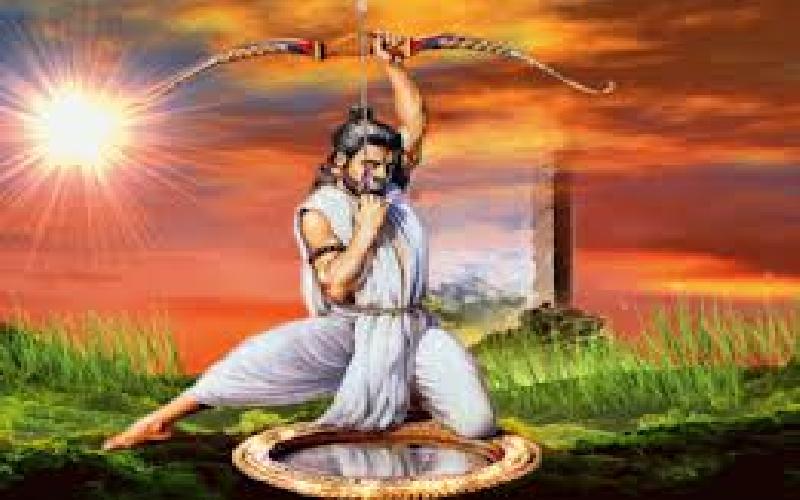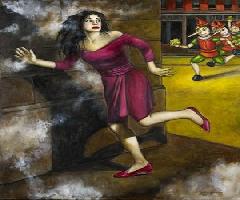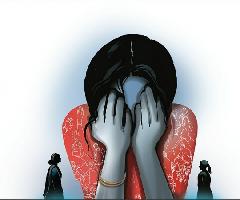Guilt and Gita
Guilt and Gita are inseparable. The main theme of Gita, the sacred and revered book of Hindus, is guilt and avoidance from guilt. It is marvelous treatise on the subject of guilt. None in the world had dealt so exhaustively from various angels and perspectives, the universal theme of guilt, as have been treated in this sacred book. Gita seems to be not a book of exposition of Hindu religion or Hindu faith but a classic, master piece work of psychology, dealing in the various aspects of subject of guilt. The treatment of the theme is very imaginative,
intriguing and fascinating. Nothing has been left to chance. Everything has been logically explained in most lucid style. Every individual can find something similar to his nature and temperament in Gita. Not only the problem has been dealt but its solution and therapy has been also suggested. Krishna, the lord seems to be eternal therapeutic agent or therapist who tries to treat guilt ridden Arjuna in best possible way without putting him on anti depressants and sedative drugs of habit making, like today’s psychologists.Guilt a paradoxical emotion
Guilt is universal negative emotion and its base is the contradiction and paradox of the underlined psyche. Our body and mind work with total resonance and harmony within and with each other. When this harmony and resonance of mind is broken or disordered due to the contradictions of feelings and thoughts, inherent in the human psyche, the guilt is produced. When the natural innate temperament or inclinations of the person comes in direct clash with egoist construction of thoughts of the person, a knot is build up and natural flow of psyche is thwarted giving birth to complexes in human psyche.
Complexes
These complexes play havoc with human behavior and produce lot of tension and anxiety in the mind. These also consume or suck the energy of the person reducing him to Skelton. Arjuna, the warrior (Kshatriya) and prince finds himself in a critical position, as a result of being caught between two mutually contradictory paths of duty (Dharma) and making a choice between them. He becomes doubtful of his proper duty as a warrior or peace loving person. He is stuck between the choice to fight against his own kinsmen or not. “Fight or fight not” is his real problem or dilemma. Everyone is prone to Arjuna’s dilemma in one’s own life. Writers and scholars in every age and era of the evolution of human history have written works of dramas and poetry of such confusing and puzzling situations of duty and non duty, to be or not to be, purely out of imagination.
Guilt – the universal phenomena
The well known dramatist Shakespeare in his drama “Hamlet” deals with such a situation of human psyche. The plot of the drama revolves around the dilemma of the hero of the drama, Hamlet. The uncle of the prince of Denmark, named Hamlet, had murdered his ruling brother, i.e. the father of prince Hamlet, and married his widow and seized the throne Shakespeare had portrayed the state of the young Hamlet,
who is faced with the problem and puzzle whether he should kill his sinful uncle and avenge his murder or pardon him as he was his own uncle, as step-father as also the ruling king. Hamlet could not find any solution of his double mindedness and “psychic- knot” and succumbs to insanity in the end. The vacillating Hamlet between “to be or not to be” i.e. to avenge his father or not, ultimately dies as insane person. He could not come out of this dilemma for whole life and ultimately succumbed to indecision and inconstancy of his mind.The social/mental situation of Arjuna is almost similar to that of Hamlet but with the difference that he has the mentor and preceptor “Krishna” to pull him out from this confusing situation with counseling and thereaupic sessions. Standing amid the cousins armies Arjuna beheld in both cousin armies, paternal uncles, teachers like Drona and Bhisma, maternal uncles, cousin sons, grandsons, father in law and benefactors. Seeing these kinsmen his heart was filled with choking compassion and pity. A real crisis is now brewed up in Arjuna mind. The Arjuna’s psyche almost goes on total metamorphosis and complete transformation. This is an example how human psyche is influenced and molded/shaped by social milieu?
Arjuna’s psyche at battlefield
Arjuna’s psyche attitude and aptitude is now totally changed, bravery, warrior ship, chivalry give way to enfeeble mindedness, soft heartedness, and cowardice. Manliness gives way to effeminacy. The valiant hero who enters the battle field with attitude and enthusiasm of a hero and sworn enemy of the wicked now suddenly develops the attitude of a kinsman or affectionate lover. He now feels as if his limbs are failing him and his mouth is perched up. His Gandiva, the bow falls from his hands and his skin is burning. Unable to stand his mind whirls and he sees all bad omens. The dejection and despondency of Arjuna’s psyche culminates and totally overwhelms him when he declares,” should the sons of Dhrtarashtra with weapons in their hands slay and murder me, unresisting and unarmed in the battle, that would indeed be better for me”. The first chapter of Gita is called “vishadyoga” means the depression and despondency of Arjuna’ psyche. Why Arjuna’s mind underwent such a drastic attitude of life and mind suddenly? The Arjuna’s sudden change of attitude and mood shows how volatile, unstable, changeable and fluid the human mind and nature is? In one minute it travels to sky and another minute it sinks to fathoms of sea. It is never stable, motionless, stillness and stead fast.







